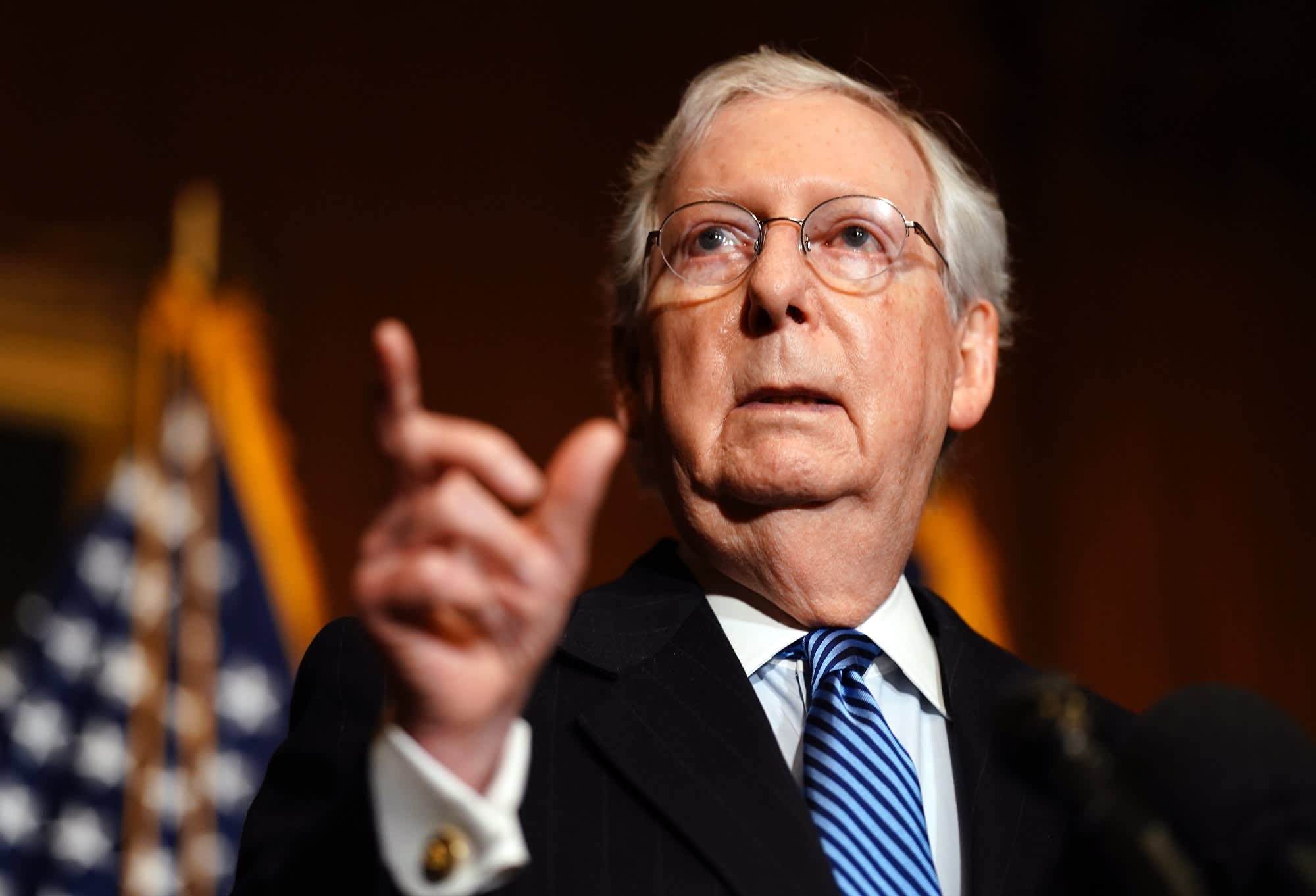Trump signs one-week government funding bill as Congress buys time for Covid relief

President Donald Trump signed a one-week government funding extension Friday as Congress rushes to reach spending and coronavirus relief deals.
The Senate passed the measure in a voice vote earlier in the day, and the House approved it this week. Funding would have lapsed Saturday if Washington failed to pass a spending plan.
The law funds the government through Dec. 18. Congressional leaders hope to pass both a full-year appropriations package and pandemic aid before then. They have struggled to reach agreement on both fronts.
Appropriators have agreed on a $1.4 trillion price tag for legislation to keep the government running through Sept. 30, 2021. However, they have failed to agree on where exactly the money will go.
Despite the most frantic efforts in months to craft a coronavirus rescue package, Congress has several major disputes to resolve to reach a deal. Millions of Americans await help as an uncontrolled outbreak ravages communities across the country and leads to hunger unseen in years.
If lawmakers cannot pass relief legislation in the coming days, about 12 million people will lose unemployment benefits on the day after Christmas. An eviction moratorium and family leave provisions put in place earlier this year will also expire at the end of December.
Two senators, independent Bernie Sanders of Vermont and Republican Josh Hawley of Missouri, threatened to block the spending measure from passing as they pushed Congress to send more aid to Americans. The lawmakers wanted a vote on a proposal to send another direct payment of up to $1,200 for individuals and $500 per child.
Sanders said he decided not to object to funding the government Friday but would next week if Congress has not moved to provide more relief.
“We have more hunger in America today than at any time in the modern history of this country,” the senator said in pushing for direct payments.
Congress has failed to send more help to Americans for months despite sustained health-care and economic crises. A GOP-backed proposal to give businesses immunity from coronavirus-related lawsuits and a plan to send more aid to state and local governments supported by Democrats and many Republicans remain the biggest sticking points in reaching an agreement.
Democrats have also criticized the fact that the White House’s latest $916 billion aid offer, which GOP congressional leaders blessed, does not include any additional federal unemployment insurance money. It has a $600 direct payment, half of the total of the stimulus checks Congress approved in March.
Democrats have put their weight behind a $908 billion package that a bipartisan group is crafting. The measure would include a $300 per week federal jobless benefit but no direct payments.




